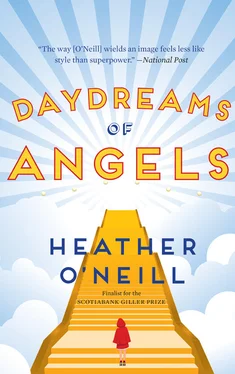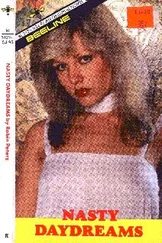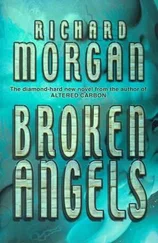What would she do now? It was the end of the 1920s, and the Depression had hit. The company would never let her back in the chorus line. Perhaps she would end up working in a strip club with pink sequined butterflies on her nipples. What did it matter? And what on earth would happen to her when she was too old for even that? Well, that would have to end up being a good thing. It would! She was a prisoner to her youth. When she finally wasn’t young anymore, she wouldn’t be dependent on it. She would be forced to find her own way in the world.
But in any case, Forester still hadn’t won. She would continue to hate Forester until her very last day on earth. That was the one thing she knew about herself. That was the one thing she would remain true to.
Grandfather claimed to have been dead a few seconds once, when he was nine. The story went that he’d been so cold in his house that he froze to death in the middle of the night. Lucky for him, his mother had been boiling water for tea and porridge early in the morning and had come in to wake him when she did. Seeing that he was blue, and that his hair was frozen and sticking straight up, she put him in the bathtub and covered him with tea and hot water and she yelled for all his brothers and sisters to come and rub his fingers and his toes. And finally, he came back to life.
“Impossible!” my brother would scream when my grandfather told his tale.
“It’s not impossible at all,” Grandfather would counter. “You get perfectly preserved when you’re frozen. They defrost cavemen all the time. Even after five thousand years. The scientists buy them a fashionable suit, take them out for a steak dinner, and they’re as good as new.”
My brother and I believed that my grandfather, as he often did, had mistaken something he’d seen in a Hollywood comedy for real life.
Just the same, the time he had died was far and away one of Grandfather’s best stories.
Grandfather had no idea what actual heaven was like because he had never gotten that far. He just knew about the train ride there. You see, according to him, when you died, you ended up on the platform of a huge railway station. There were thousands of cars, such an impossibly long line of them that you couldn’t even see the last one. He said you don’t realize how many people die in a single morning until you’re dead and standing in a crowd among them. He said the crush of people was worse than Coney Island on the Fourth of July. The conductor had to make many stops at many platforms so there wouldn’t be a stampede.
He said the year was 1942, so a lot of the adults showed up in terrible shape. Especially the soldiers, who were missing limbs and drinking from metal flasks. A soldier in a wheelchair was softly asking an angel if there was any way he could get his legs back, and the angel told him it wouldn’t be a problem once he got to heaven. Then he safety-pinned a little blue card to the soldier’s jacket that read “URGENT.” Quite a few people had these cards pinned to them, and despite all their infirmities, Grandfather said, they were the happiest looking people he had ever seen.
The angels sorted through everyone, rushing about and chain-smoking cigarettes — for as it turned out, in heaven, smoking was good for you. They gave all the children first-class tickets that allowed them to ride in the cars at the front of the train. There were hordes of children too, Grandfather said, as children died all the time back then. They were all dressed in the tuxedos and little white gowns that their mothers had dressed them in before laying them on the living room table and weeping over them. They held the flowers placed in their hands when they were laid to rest, and their hair was combed neatly to the side. Grandfather met a child who had drowned who kept making sudden panicky swimming motions before realizing that the struggle was over. There was another child who had died in a fire who kept coughing up smoke. But other than that, they were an entirely well-groomed bunch, and they filed into the train in a well-behaved manner.
Animals got to go to heaven, too. There were cows and chickens and pigs everywhere. They were put into the same cars as the children, to cheer the children up. All these wheezing geriatric cats were there and an elephant that was being led by an angel.
The angels yelled at the kids, “Move along, move along. Nothing to see here.” The elephant received its own compartment, as did a giant squid. There were compartments that were huge aquariums filled with fish that had passed away, and as Grandfather walked along the platform, he could see them swim by through the train windows.
One little boy with two black eyes was leading a swan around by a belt that he’d looped around the bird’s neck. There was an ostrich speaking Russian to another little boy in black boots, who kept responding, “Da, da, da,” while nodding his little head, for in the afterlife, animals and humans can talk to one another.
There was a lone cheetah that came and sat in the same compartment as Grandfather, and the cheetah spoke in Polish and Grandfather realized he could speak Polish too. It seemed you could speak any language you wanted after you died and were on your way to heaven.
The cheetah had been to heaven just last month when he had died of dehydration in Kenya, but then he had been resuscitated by a sudden rainstorm, only to be trampled to death by a pack of stampeding wildebeests a few weeks later. He already knew what heaven was all about and so was offering tips.
As the train began to move, the cheetah told Grandfather that heaven would be fine if not for the angels.
“They’re a brash bunch — so full of themselves,” said the cheetah. “And no people skills at all.” He said it was best to completely ignore them.
All over the tracks were feathers that had been shed from the wings of the angels who ran the operation. They pulled out business cards that said things like “Ezekiel, angel extraordinaire, right arm of the Lord’s wrath.”
“It’s useless making conversation with them,” said the cheetah. “Angels have too many anecdotes and never let you get a word in edgewise.”
Later, Grandfather watched two angels discuss the Battle of Bosworth, and what a jerk Richard III had been.
“A mediocre monarch at best,” said one angel, “and at night, under the blankets, a big fat blubbering crybaby.” And in response, the other angel laughed.
Some of the angels who carried trumpets opted to ride on top of the train. Grandfather said you never really heard the trumpet until you heard an angel playing one. All through his life, Grandfather collected records of horn players, always trying to find that wondrous sound again. There was a recording of a Hungarian Gypsy trumpet player that came the closest, and Grandfather would play the scratchy record over and over with his eyes closed.
One of the clipboard-toting angels climbed into Grandfather’s car at one of the stations and offered him a cigarette. That’s where he claimed to have picked up smoking. He handed Grandfather his file, which covered his good and bad deeds. But, said Grandfather, it was virtually impossible to decipher the texts that angels wrote. It was like reading footnotes. They were overeducated because they had been alive so long, and their written assessments of people looked like equations that were too complicated to follow. As a result, all of your good deeds became almost indistinguishable from your bad deeds. And in the end, it didn’t matter, because everybody got to go to heaven anyway. God loved and wanted everyone. For Him, you were as innocent as the day you were born. Grandfather was certain of this because at each stop, murderers stood on the platforms weeping as they confessed their crimes out loud. Some of them felt so guilty that they didn’t even want to get on board to go to heaven. But the angels patted their backs and whispered things in their ears that only made them cry more. And eventually, they got on board.
Читать дальше












